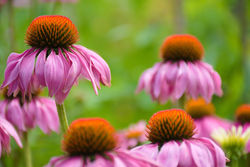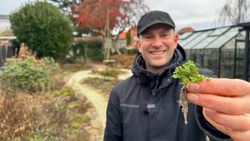Mental health and gardening: Plant your way to a calmer mind
- Lars Wildes
- Jan 29, 2024
- 4 min read
From yoga to meditation, there are many ways to keep our mental health in check. But what about mental health and gardening? If you’re looking for a new way to boost your mental well-being, then look no further than what’s already happening in your backyard.
Gardening has long been viewed as a calming and therapeutic hobby, but can it really help with mental health? The answer is yes! And it’s an answer backed by research (not just my own experience).
Plus, the fruits of your labor can be enjoyed right away, either in terms of the plants and produce you grow or the beautiful outdoor spaces you create.
Let’s take a closer look at how gardening helps improve mental health and why getting your hands dirty is more therapeutic than you think.

The mental health benefits of gardening
Gardening has been found to have many mental health benefits due to its calming nature. It can reduce stress levels and provide an outlet for creativity.
The physical act of working with your hands can be incredibly calming. Studies have shown that physical activity like gardening reduces stress hormones and increases endorphins — the “feel good hormones” — in the body.
This can ultimately lead to an improved emotional state and better overall well-being. Not to mention the positive impacts of living a healthier lifestyle.
Gardening also helps to build self-esteem and confidence. When you create something beautiful, you feel accomplished and proud of your work. Taking the time to grow a plant from seedling to flower or fruit gives a real sense of accomplishment. Something we can all use in today’s fast-paced, give-me-now digital world.
Gardening is a great way to boost your mood and build skills like problem-solving and creativity.
Plus, you also get all of the benefits that come from being outdoors — fresh air, sunshine, and relaxation.
At its core, gardening is about working with nature — allowing yourself to be consumed by the process and letting yourself become part of something bigger. This feeling of connection is incredibly powerful and often leads to a sense of peace and tranquility.
Research shows that spending time outdoors helps improve physical and mental health, including reducing stress levels, increasing happiness levels, and improving sleep quality.
There’s a strong bond between time spent in nature and lower negative emotions. This includes symptoms of depression, anxiety, irritability, insomnia, tension headaches, and indigestion.
Gardening is therapeutic
Gardening is therapeutic because it gives you something to do with your hands while allowing your mind to wander freely.
If you’ve ever found yourself lost in thought while tending to your garden, then you know what I mean when I say that gardening can be calming and meditative.
Plus, since gardening requires focus on physical tasks, like pruning and planting, it can be an effective way to manage stress and anxiety.
Gardening promotes mindfulness
Mindfulness is about being present in the moment and tuning out all the distractions in your life, and there’s no better place to practice mindfulness than in the garden.
Gardening forces us to stay focused on the task at hand, making it a great opportunity to practice being mindful and present. This kind of mindful practice has been shown to help reduce stress levels and boost overall well-being.
Gardening connects you with nature
Gardening doesn't just benefit our mental health; it's good for our physical health as well.
Being outdoors exposes us to fresh air, sunlight, exercise, and even social contact if you join a local community garden group.
All these things have been linked with improved moods, increased energy levels, improved sleep quality, and lower levels of stress hormones like cortisol.

Gardening tips for mental health
If you want to use gardening as a form of self-care, here are my top tips:
Start small – Don’t feel overwhelmed by the thought of tackling large projects right away. Start with something manageable such as growing herbs indoors or planting flowers in pots and containers outside your front door. This will help build confidence until you feel comfortable taking on bigger projects later down the line.
Create a plan – Before getting started, create a plan that outlines your goals for your garden (e.g., growing vegetables or just getting a friendship plant (Pilea) to survive. Having a plan makes it easier for you to stay organized and on track throughout the process without feeling overwhelmed by all the tasks ahead of you.
Get creative – Gardening doesn't have to be limited solely to plants; use your imagination! You could try adding artwork or sculptures to your garden design or even build structures like trellises or arbors out of wood or metal for an added touch of creativity.
Getting started with gardening
If you’re interested in giving gardening a try for improving your mental health, there are some things you should consider before getting started.
First, make sure that you have the tools necessary for success. This includes good soil, quality plants and seeds, garden tools (shovels, trowels), fertilizer/composting materials, etc. Having the right foundations will make the process much smoother.
You should also think about what kind of garden environment would best suit your needs. Some people prefer small container gardens while others opt for sprawling vegetable gardens or flower beds on their property.
Finally, start small so as not to overwhelm yourself. Gardening is meant to be enjoyable after all.
And it's not just us who finds that gardening makes you happy, Cranery Gardens does too. Discover the top reasons in the video by Crane below.
From reducing stress levels to providing us with an outlet for creativity, there are so many ways that gardening can benefit us mentally and emotionally. And even first-time gardeners can benefit right away.
Whether you’re a beginner gardener or an experienced green thumb looking for ways to improve your mental well-being through gardening, taking these steps can help you on your journey toward improved mental health. Happy planting.






Comments